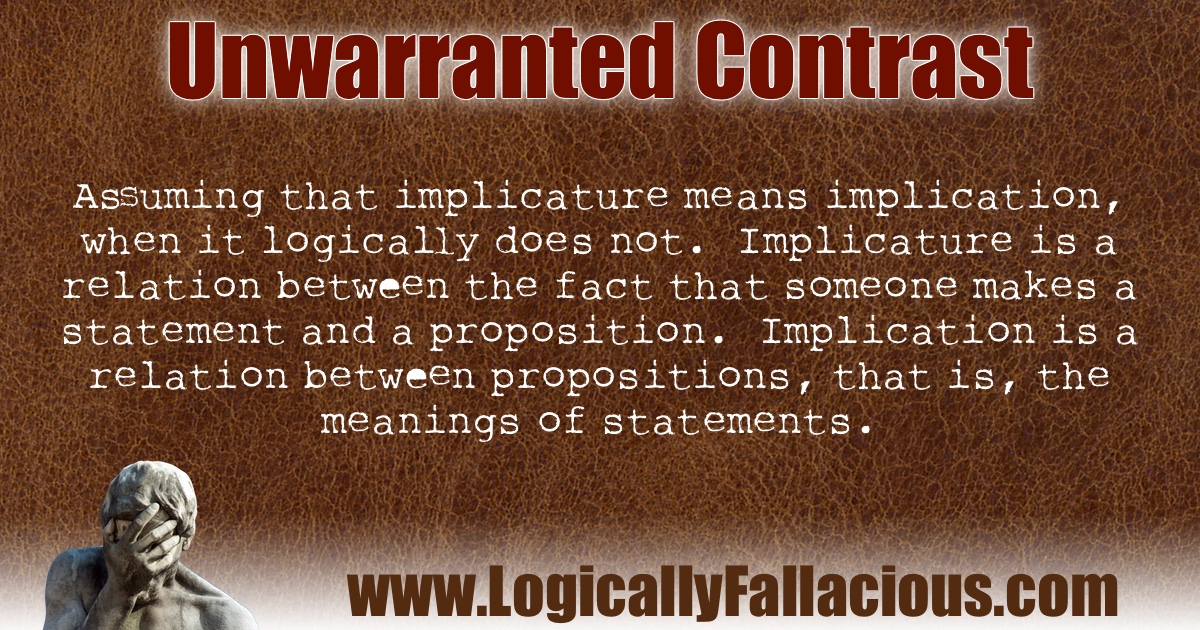(also known as: some are/some are not)
Description: Assuming that implicature means implication, when it logically does not. Implicature is a relation between the fact that someone makes a statement and a proposition. Implication is a relation between propositions, that is, the meanings of statements.
Logical Forms:
Some S are P.
Therefore, some S are not P.
Some S are not P.
Therefore, some S are P.
Example #1:
Some atheists are human.
Therefore, some atheists are not human.
Explanation: This might be the case, but we cannot logically imply that this is the case because the use of “some” does not logically imply that it does not mean “all”. In everyday use, “some” does implicate “not all”, that is why this is fallacious and could be used to deceive without technically lying.
Example #2:
Some Christians are not Jews.
Therefore, some Christians are Jews.
Explanation: Just because we stated that some Christians are not Jews, does not mean we can logically conclude that some Christians are Jews. While we may implicate it, the statement does not imply it.
Fun Fact: This is another of those odd fallacies that are included for completeness sake. People don’t typically use “some” in place of “all” or “none.”
